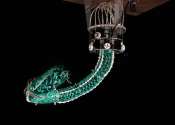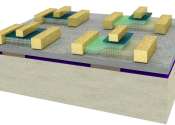Ecole Polytechnique Federale de Lausanne
The École polytechnique fédérale de Lausanne (EPFL) is one of the two Swiss Federal Institutes of Technology and is located in Lausanne, Switzerland.
The school was founded by the Swiss Federal Government with the stated mission to:
The sister institution in the German-speaking part of Switzerland is the Eidgenössische Technische Hochschule Zürich (ETH Zürich or ETHZ). Associated with several specialised research institutes, the two sister institutes form the ETH Domain, which is directly dependent on the Federal Department of Home Affairs. EPFL is ranked among the top universities in the world.
Founded in 1853 as a private school under the name École Spéciale de Lausanne, it became the technical department of the public Académie de Lausanne in 1869. When the latter was reorganized and acquired the status of a university in 1890, the technical faculty changed its name to École d'Ingénieurs de l'Université de Lausanne. In 1946, it was renamed the École polytechnique de l'Université de Lausanne (EPUL).
- Address
- Route Cantonale, Lausanne, Switzerland
- Website
- http://www.epfl.ch/
- Wikipedia
- http://en.wikipedia.org/wiki/%C3%89cole_Polytechnique_F%C3%A9d%C3%A9rale_de_Lausanne
Some content from Wikipedia,
licensed under CC BY-SA









